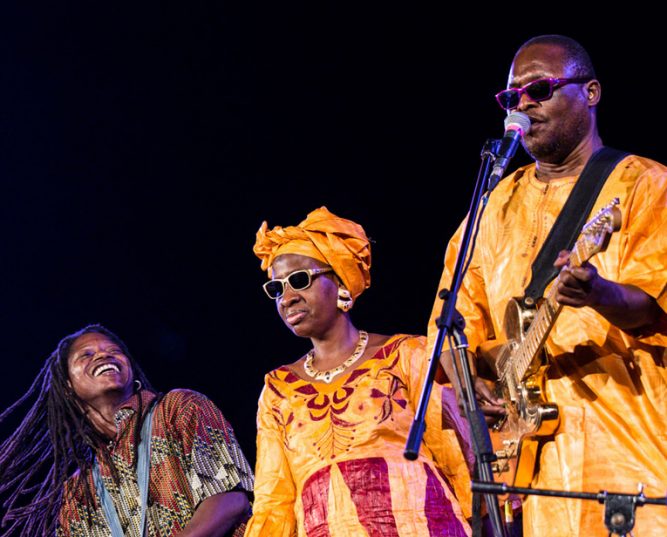From Africa to Florence: July’s Festival of the Desert
 Back for a ninth time, Florence’s Festival of the Desert’s annual free celebration begins this Saturday at the Manifattura Tabacchi. From June 30 through July 3, the city welcomes a synthesis of musical styles and origins, embracing a cross-cultural event that extends from heart of Africa to the streets of Italy.
Back for a ninth time, Florence’s Festival of the Desert’s annual free celebration begins this Saturday at the Manifattura Tabacchi. From June 30 through July 3, the city welcomes a synthesis of musical styles and origins, embracing a cross-cultural event that extends from heart of Africa to the streets of Italy.
Interpreting these themes, the four-day musical marathon will mix conventional acts with contemporary forms, merging jazz and reggae musicians with electronic DJs. Through this fusion, the Festival of the Desert hopes to modernize tradition, re-imagining the parameters of African song to accommodate a future still in sync with the past.
Performances begin Saturday with the Eyo ‘Nle Brass Band of Benin, while Malian musician Baba Sissoko and Senegal DJ Ibbaku are both slated to perform on Sunday. Also from Mali, Ballaké Sissoko will soothe audiences on Monday with notes on the kora, before Italian DJ Clap! Clap! re-energizes listeners with his upbeat tunes. The festivities conclude on Sunday with a duo of duos, starting with Nigeria’s Les Filles de Illighadad and closing with France’s Acid Arab.
Unlike 2017’s staging at Piazza Ognissanti, this year’s entertainment will take to the Manifattura Tabacchi: a former tobacco factory-turned-cultural-space outside Piazza Puccini. Each concert begins at 7 pm and admission is free.
Not yet a decade old in Florence, the Festival of the Desert originally began in 2001 in its continent of origin. Over 15 years ago, the African city of Mali first hosted the celebration each January to commemorate meetings between the Tuareg people in Timbuktu. At these meetings, tribal members would reconvene to share information and reflect on community through song and dance. Initially open only to artists from Mali, the spectacle has since expanded to include entertainers throughout Africa, later inviting those from Europe and the rest of the world.
Due to unrest in Mali, the festival has been in exile in Africa since 2012 and forced to relocate to alternative locations. The tradition was slated to return to Timbuktu last year, but after Al-Qaida suicide bombers attacked the city of Gao, African officials cancelled the concert to avoid safety risks. For the people of Timbuktu, the tradition has consequently grown to represent more than a series of performances; it signifies a unity between people under attack, a means of celebrating community despite extremist threats.
The unstable political climate, coupled with an increasing inclusivity of regions beyond Mali, brought the festival to Florence in 2010. The Italian rendition began at the Parco delle Cascine to connect musicians from Africa, the Mediterranean, and Europe and has continued to unify artists with a range of nationalities. In collaboration with the African Festival au Désert di Essakane and the Fondazione Fabbrica Europa, the weekend combines shows with workshops, readings, and meetings—each blanketed under themes of transit and migration. For the full program, visit the website.
Only time will tell if and when the festival returns to Africa, but in the mean, Florence will continue share in a musical heritage distinguished by culture, history, and an ever-growing community. (anna staropoli).
